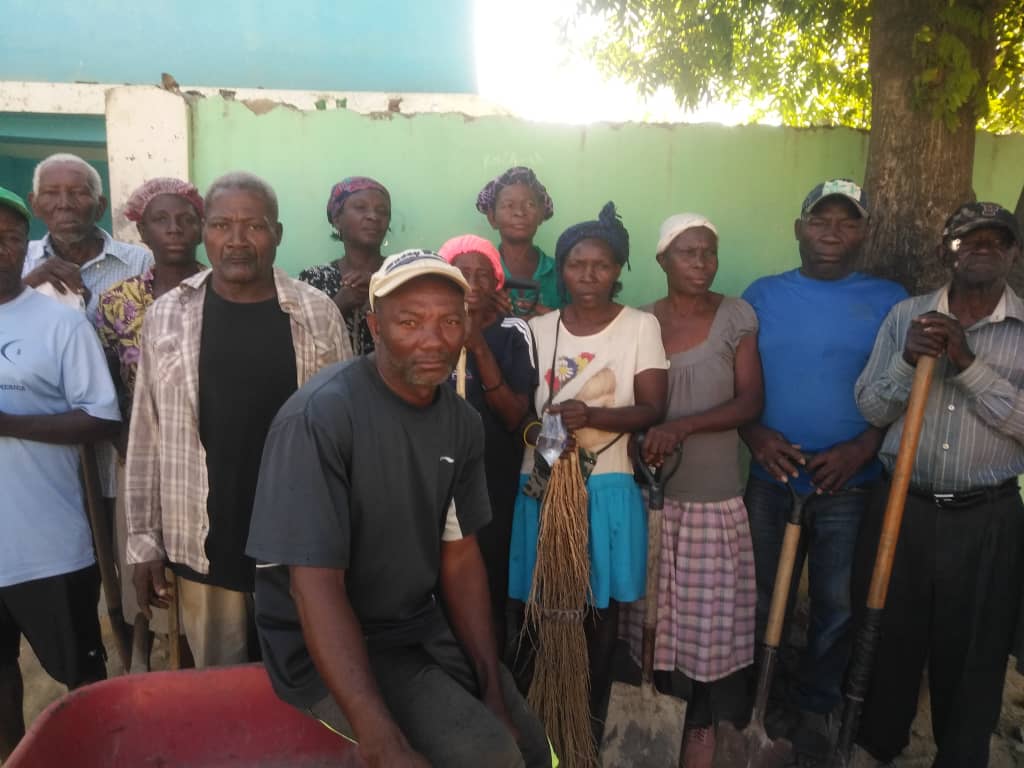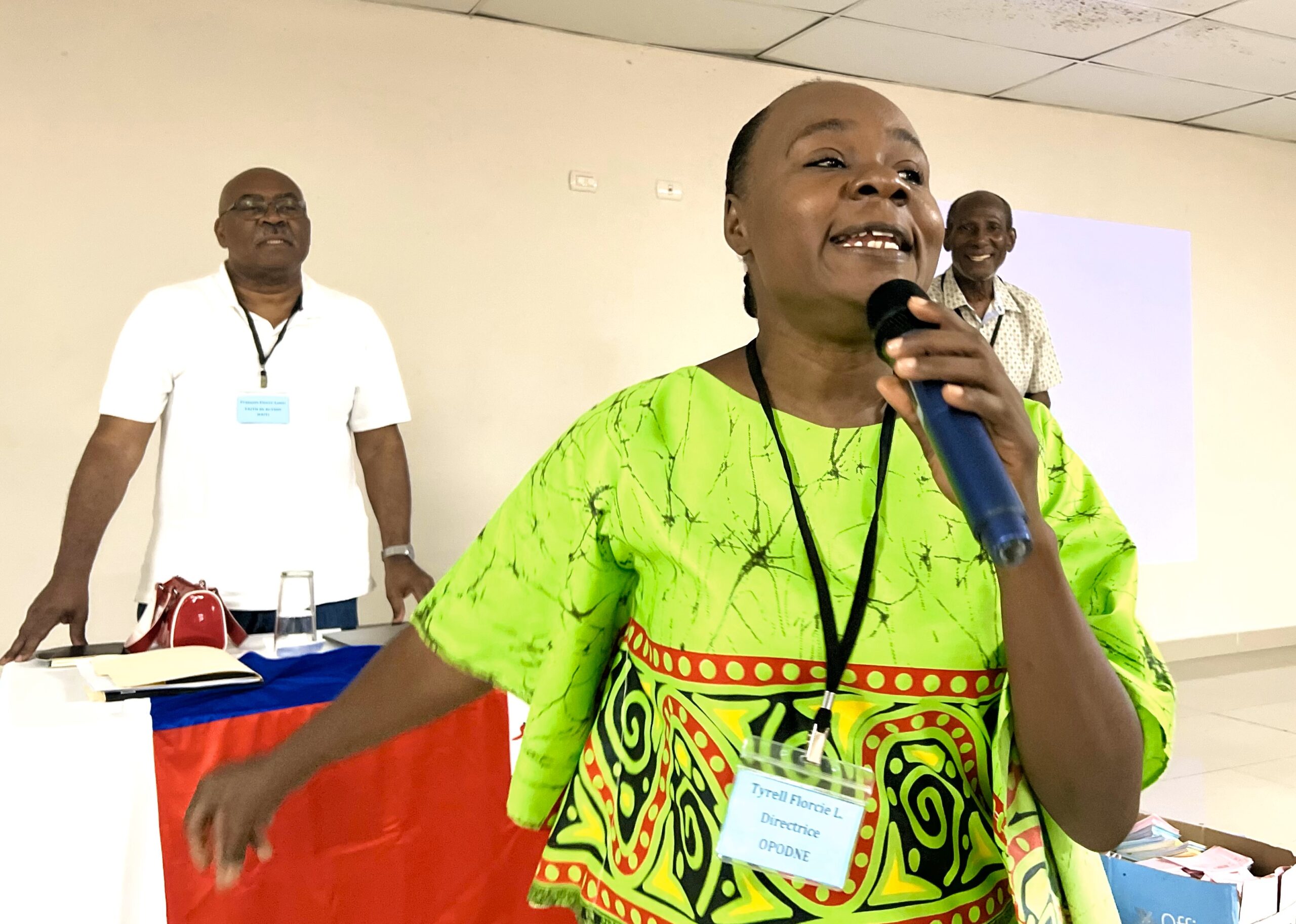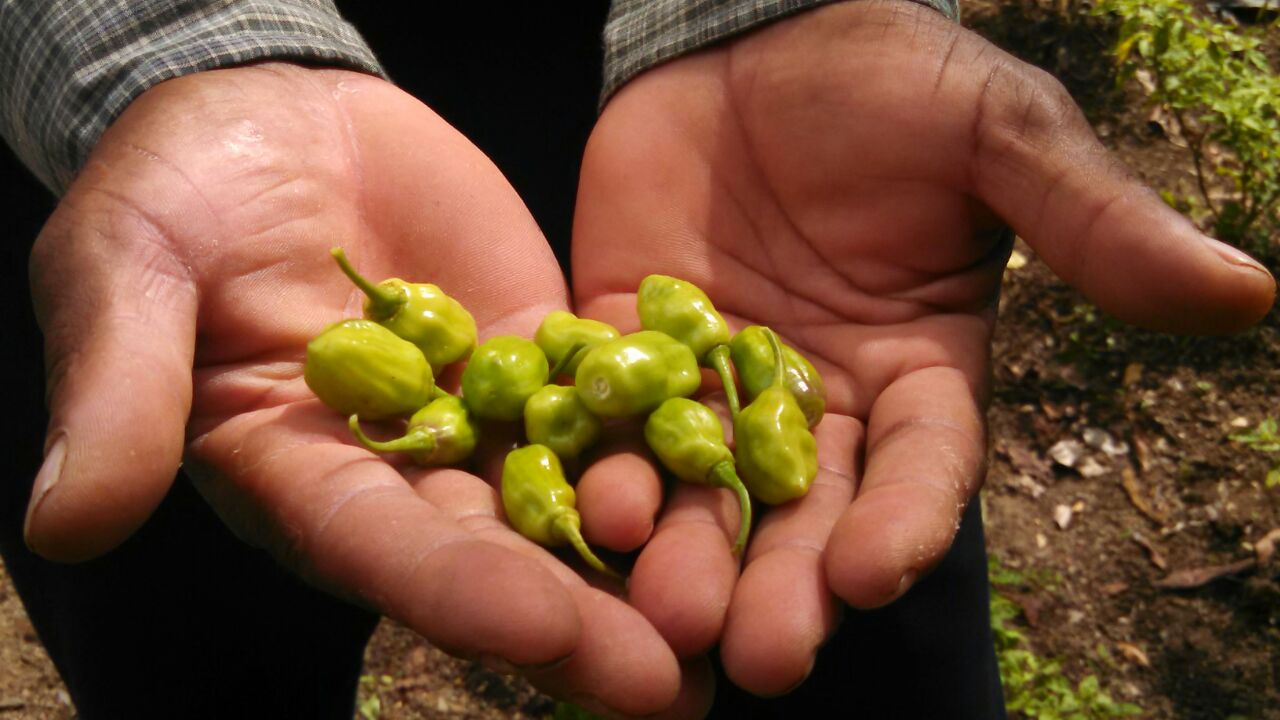“We have not been deterred by the loss of Inter-American Foundation funding for our agricultural campaign.” – Florcie Tyrell, OPODHA Executive Director In North and Northeast Haiti, Florcie Lareche…
Haitian farmers urge Samantha Power to change USAID’s agricultural policy in Haiti
OPODNE and Faith in Action International’s Way Forward in Haiti campaign sent a letter today to USAID Administrator Samantha Power, calling on her to change USAID’s agricultural policy in Haiti to support small-scale farmers with the inputs they need to adapt to drought and climate change.
The letter calls on the USAID Administrator to take the following steps:
-
Personally engage with Haiti by visiting North and Northeast Haiti to meet with local Haitian farmers. OPODNE members are happy to host you in one of the 62 communities where they live and work.
-
Collaborate with OPODNE, other community-based and peasant organizations, and regional government offices to co-create a comprehensive water management plan for the Plaine du Nord–Massacre Aquifer that balances water usage and enables local communities and small-scale farmers to adapt to drought through investments in deeper wells, piping, and catchment basins to make water available where it is needed.
-
Release the USAID-funded research by BRGM, the French Geological Survey, modeling groundwater flow in the Plaine du Nord–Massacre shallow aquifer, which was originally carried out to assess the feasibility of DAI’s plans for large-scale, water-intensive banana cultivation for export.
-
Apply USAID 25 percent locally-managed/50 percent locally-led localization requirements to Haiti.
-
Provide USAID funding to the Inter-American Foundation to double their available resources to directly support Haiti community-based organizations, which are on the front lines of responding to Haiti’s humanitarian and pollical crises.
-
Find the $500,000 in funding needed to fully launch the Northeast Haiti Community Seed Bank. USAID could achieve this goal by replenishing funding for Locally-Led Development in Haiti.
-
Cancel for convenience USAID’s Haiti Resilience and Agriculture Sector Advancement (HRASA) contract with DAI and redesign this initiative through a co-creation process with local farmers, peasant organizations, and community-based organizations, focusing USAID’s agricultural policy in Haiti on the inputs farmers need to adapt to climate change.
-
Support inclusion of localization goals in Resilience Food Security Activities (RFSAs) and McGovern-Dole Food for Education in the Farm Bill reauthorization, and restrict Community Development Fund (CDF) projects to community-based, locally-led organizations.
More background: USAID ‘freight train’ creates big localization frustration in Haiti



